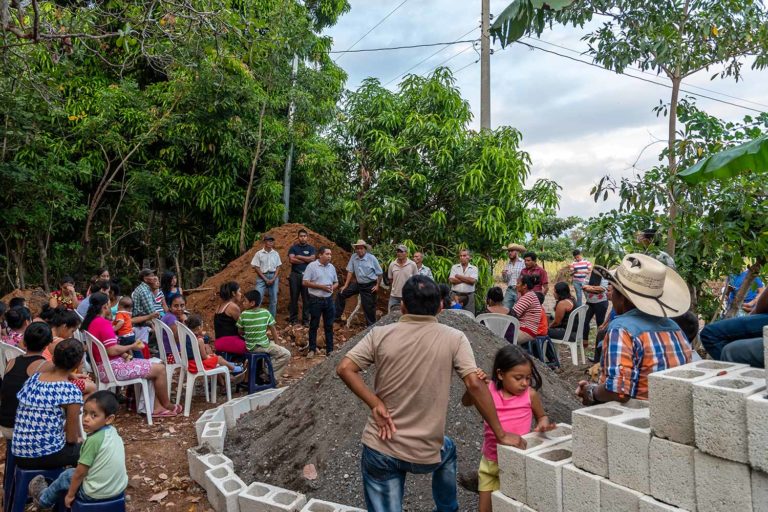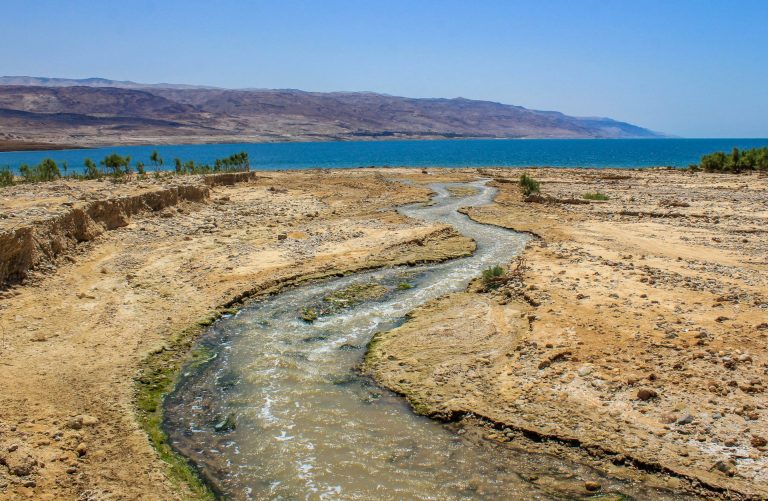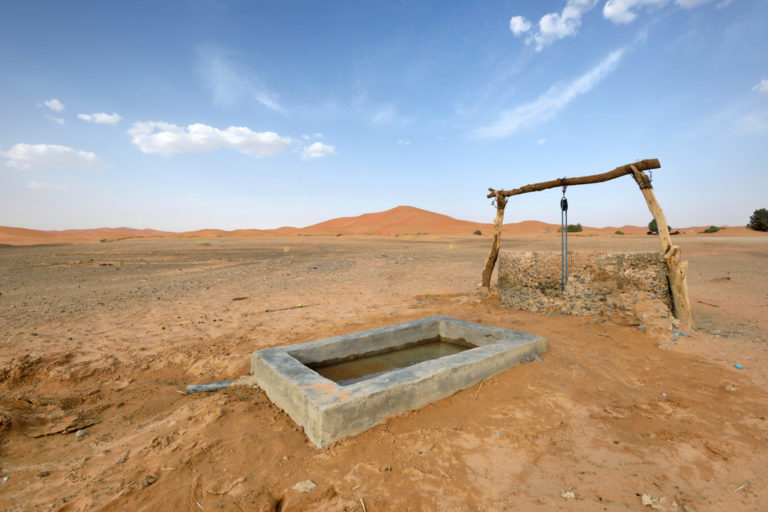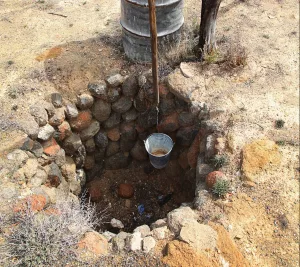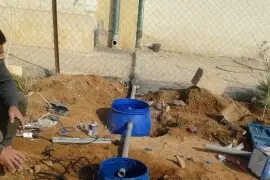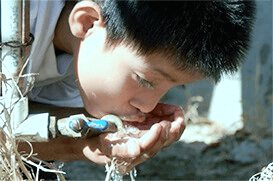heading
The goal of the water integrity programme is to improve transparency, accountability and participation in water resource management and service delivery.
Impact
The Water Integrity Programme is active in almost 40 countries around the globe. It has strengthened the institutional capacity of various water-related institutions in Middle-East and North Africa, in Sub-Sahara and Latin America to improve integrity in water resource management. The program has gained tremendous political endorsement in all of the target regions and has been making sustainable impacts on water resources management based on transparency, accountability and participation.
Challenge
The water sector is vulnerable to corruption due to the presence of large-scale construction projects and large flows of public money as well as the great need for water – for which there may be no substitutes – reinforced by the power positions of suppliers – commonly monopoly providers. In combination with weak governance systems – including unclear roles and responsibilities between water actors and institutions – corruption may thrive.
Corruption diverts resources that could be used to improve water and other services, especially for poor people. It also undermines economic development as it discourages investments, skews decisions and undermines performance and effectiveness of both public and private actors. Corruption also undermines the rule of law and sector regulation by circumventing existing rules and legislation. Consequences of this include increased water pollution and over-abstraction of ground- and surface waters.
Breaking with corruption in the water sector will not be easy. From an outside perspective, corruption in the water sector can be seen as sabotaging governance. Looked at it from the inside, corruption is better described as a certain type of governance, although very destructive, unequal and unpredictable. Corruption in the water sector is typically tightly organized, is internally stable with a logic of power and reciprocity, supported and supporting weak political competition, dysfunctional public administration, and a weak civil society. According to the Water, Integrity Network (WIN) anti-corruption measures must therefore be comprehensive, long term, and be developed on the five building blocks of the PACTIV-approach: Political leadership, Accountability, Capacity, Transparency, Implementation, and Voice. (WIN).
Opportunity
The water integrity programme provides a tremendous opportunity for cooperation between the private, public and civil society actors to initiate a lasting partnership to enhance integrity in water sector. There is a need for a holistic approach. Capacity development and training alone are not sufficient to promote water integrity. State institutions responsible for delivering water services has the opportunity to understand the importance of good governance for sustainable development and its long term security implications. Effective corruption control should form a core element of this strategy. Governments and other stakeholders should put in place anti-corruption commissions, ratify international and regional conventions, strengthened national legislation and put more emphasis on general audit functions. Specific laws, policies, reforms, processes or organizations should be formed to promote integrity and accountability in public and private decision-making and water resource and services management.
These conventions, as well as general laws, policies, reforms, processes and organizations, should provide an enabling environment for countering corruption and promoting integrity, transparency and accountability in the water sector specifically. Furthermore, there is an opportunity for the governments and civil society to undertake diagnostic steps using appropriate tools to identify the hotspots of corruption. Appropriate interventions are needed at policy, legal, institutional and management level to curb corruption. Some further opportunities include strengthening procurement systems, consumer redress and influence, increasing accountability and transparency in water projects by promoting community ownership, enhancing the role of media and civil society, public expenditure tracking, strengthening capacities and awareness among water managers, regulators, and decision-makers, undertaking a water integrity risk assessment, strengthening the capacity of water watch groups and capacity development for water governance among policy-makers are essential.
The Water Governance Facility at SIWI as mechanism for integrity capacity building welcomes demands from the regions, countries or governments willing to address water integrity challenges to meet sustainable development goals. We would be pleased to share our expertise, knowledge and experience together with our partners to address these formidable challenges.
Strategy
This programme is a preventive anti-corruption measure in water resource management. It aims to establish a systematic approach in building, improving, reinforcing and sustaining a culture of integrity in public and private sector institutions that is rooted in acceptable values, principles and standards of good governance. The program builds on the experience of implementing ongoing water integrity development measures, namely, the water integrity capacity building programme in MENA and the new water integrity capacity building programme in Sub-Sahara Africa-phase II.
The ongoing water integrity programes fortifies the gains and benefits of the future programmes via a holistic approach in instituting the use of highly innovative change management processes, techniques and tools in promoting, advocating for water integrity in public sector institutions and the people that comprise it in the performance of their mandates.
Water integrity capacity building intervention is a planned and concerted approach by which public sector institutions commit to harness a culture of integrity among officials and personnel. It is conceived to empower these institutions in managing the renewal and improvement of individual and institutional values, principles of conduct and standards of performance for the attainment of integrity in the highest degree which befits a public sector institution worthy of public trust. It is an outcome-based initiative to effect a directional change in integrity management across public sector institutions from their respective central authorities down to the different operative units. It is a total commitment of all those who comprise the institution to take the reins in its integrity journey from initiation up to the point where said institution is able to attain credibility and has earned the trust and acceptance of the public by demonstrating integrity in the performance of its mandates and in the delivery of its programs and services.
The programme employs the following strategy to improve integrity in the water resource management:
- Provision of tailor-made technical assistance arrangements, capacity-building initiatives, with specific anti-corruption tools and measures to enhance water integrity.
- The development process involves a multi-stakeholder group of anti-corruption bodies, water users, CSOs, Media, private sector and governmental institutions. The involvement of diverse stakeholders enhance the principles of transparency, accountability and participation in addressing water integrity risks.
- Making water integrity measures in conformity with current anti-corruption priorities of national governments in target countries.
- Provision of adoptable tools to be employed by the implementing institution. Tools are not one-size-fits-all approach, instead, it empowers said institution to best suit an approach according to the peculiarities of its organization.
- Provision continuous technical backstopping, integrated with the water integrity risk and management plans along with priorities. As well as Integrating integrity management plan in the organizational plans such as strategic plans and operations plans, among others.
Trust and Confidence Building Measure
The water integrity programme aims to establish confidence and trust also known as “Trust and Confidence Building Measure (TCBM)” in the capacity of public sector institutions to install a change management process along the mutually reinforcing elements of integrity as follows:
- Cultivating Principles of Conduct – This represents the accepted and professed rule of conduct of a person or institution of good moral principles. The integrity programme is adopting the OECD Programme’s water governance principles (2015) side by side with human rights principles.
- Enhancing Responsiveness – Ensuring that stakeholders from diverse cultural backgrounds face no barrier in receiving government services; are treated fairly; are given clear information about their entitlements and obligations; and are assisted by the institution’s service staff in ways that meet their particular needs.
- Cultivating Strategic vision – The leaders and the public have a broad and long-term perspective on good water governance and human development, along with a sense of what is needed for such development.
- Promoting Accountability – Decision-makers in the government, the private sector and in CSOs are accountable to the public and to institutional stakeholders. This accountability differs depending on the organizations and whether the decision is internal or external.
- Promoting Transparency – Transparency is built on the free flow of information. Processes and information are directly accessible to those concerned with them, and enough access and information is provided to understand and monitor them.
- Enhancing Participation – All men and women should have a voice in the water related decision making, either directly or through legitimate intermediate institutions that represent their intention. Such broad participation is built on freedom of association and speech, as well as on the capacity for constructive participation.
- Creating Consensus orientation – Good water governance mediates differing interests to reach a broad consensus on what is in the best interest of the group and, where possible, on policies and procedures.
- Supporting Adherence to standards – Refers to local and international standards, measures and rules and their harmonization, whenever necessary or required, for adherence or compliance, in order to strengthen the legal and regulatory environment in a water sector institution, and in the government at large, for fighting corruption and enhancing integrity practices.

